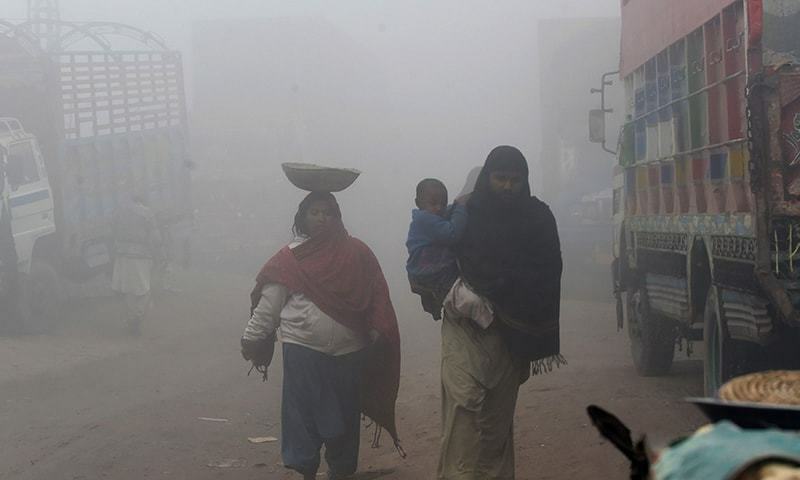- The subtle yet profound impact of air pollution on fertility is a growing concern, disrupting hormonal balance in both men and women and contributing to increased miscarriages in women.
- Air pollution in Pakistan is on the rise due to factors like emissions from old vehicles and industrial processes, leading to elevated levels of CO2 and fine particulate matter (PM2.5).
- Men exposed to pollutants experience reduced sperm quality, while air pollution induces oxidative stress, affecting sperm and egg cells.
Pakistan, a land of rich heritage and breath-taking landscapes, is grappling with a silent menace that threatens its future generations – air pollution. While the immediate concerns of air pollution are well-documented, such as respiratory problems and cardiovascular diseases, its subtle yet profound impact on fertility remains a topic of growing concern.
Air pollution is a prevalent issue in many developing cities worldwide, stemming primarily from emissions generated by vehicles and industrial operations. The roads are often congested with aged, smoke-emitting vehicles that have been discarded in their home countries due to their high pollution levels. These older, more affordable vehicles find their way to developing countries, contributing to increased carbon dioxide (CO2) levels in the atmosphere.
Main Causes of Air Pollution in Pakistan
The use of biogas extends to various applications in Pakistan, including cooking, power generation, construction, waste incineration, and stubble burning. Pakistan’s urban centers are notorious for their high levels of air pollution, stemming from various sources such as vehicular emissions, industrial processes, and agricultural practices. The air is laden with fine particulate matter (PM2.5), heavy metals, volatile organic compounds, and other pollutants that pose a severe threat to public health.

Also Read:
Infertility is an Increasingly Prevalent Issue in Pakistan: SQU
Air Pollution: The Silent Threat to Fertility
Air pollution poses a grave threat to fertility. It disrupts the delicate hormonal balance crucial for healthy reproduction, affecting both men and women. It is a known cause of increased miscarriages in women in Pakistan who are constantly breathing in the toxics emitted by pollution.
Furthermore, it raises the risk of pregnancy complications like preterm birth and low birth weight, with long-term implications for a child’s health. Psychological stress, stemming from living in highly polluted areas, indirectly hampers fertility by disrupting hormonal balance and menstrual cycles, making conception more challenging.
In an exclusive interview with WOW360, Sophia Hasnain, Founder and CEO of Linked Things talked about the alarming and soaring health concerns associated with poor air quality in major cities of Pakistan such as Karachi and Lahore.
“Poor air quality is also causing strokes and miscarriages in women. In Lahore it is so bad that the life expectancy of people is being reduced by 7 years.”
View this post on Instagram
Men exposed to pollutants experience reduced sperm quality, including lower sperm count, decreased motility, and abnormal morphology, all vital for successful fertilisation. Air pollution induces oxidative stress, harming sperm and egg cells, and contributing to conditions like polycystic ovary syndrome (PCOS), which reduces women’s fertility.
Follow WOW360 for more.
